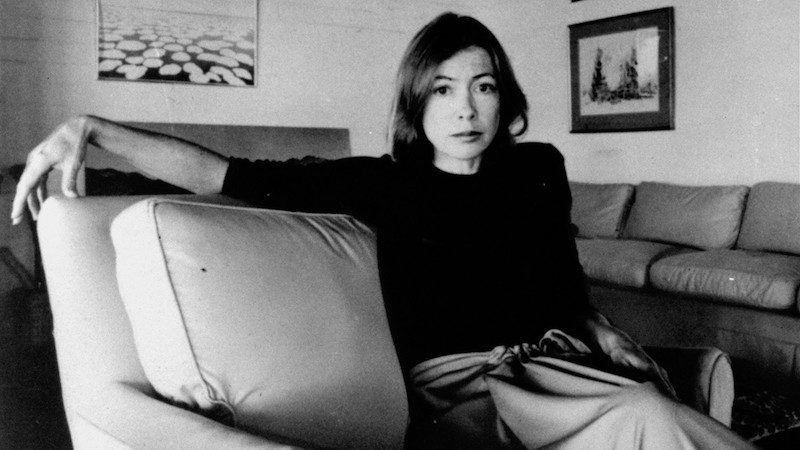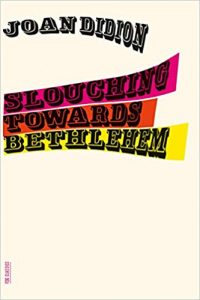

We forget all too soon the things we thought we could never forget.
We forget the loves and the betrayals alike, forget what we whispered and what we screamed, forget who we were.
“Both as a novelist and as a reporter and essayist, Joan Didion is one of the least celebrated and most talented writers of my own generation. Her first collection of nonfiction writing, Slouching Towards Bethlehem, brings together some of the finest magazine pieces published by anyone in this country in recent years. Now that Truman Capote has pronounced that such work may achieve the stature of ‘art,’ perhaps it is possible for this collection to be recognized as it should be: not as a better or worse example of what some people call ‘mere journalism,’ but as a rich display of some of the best prose written today in this country.
Though not as difficult to interpret as Susan Sontag, or as smoothly digestible as Theodore White, Miss Didion surely deserves a wide audience among those readers who may still be turned on by such qualities as grace, sophistication, nuance, irony and, as Miss Didion observed in another context, ‘what used to be called character.’
The author writes about the contemporary world—quite often the Western United States where she grew up and where she has returned after the writer’s almost obligatory boot-camp training in New York City—and though her own personality does not self-indulgently intrude itself on her subjects, it informs and illuminates them.
…
“In her portraits of people, Miss Didion is not out to expose but to understand, and she shows us actors and millionaires, doomed brides and naïve acid-trippers, left-wing ideologues and snobs of the Hawaiian aristocracy in a way that makes them neither villainous nor glamorous, but alive and botched and often mournfully beautiful in the midst of their lives’ debris. Her portrayals remind me most of the line of a great poem of Robert Frost that says, speaking of us all, ‘Weep for what little things could make them glad.’
…
“The title piece is about Haight-Ashbury, and conveys the complexity and the ‘atomization’ of the hippie scene not as the latest fashionable trend, but as a serious advanced stage of society in which things are truly ‘falling apart’ as in Yeats’s poem. Compare this piece with Time magazine’s hapless cover story on the hippies last year, and you will see why ‘group journalism’ is usually inferior to a single, talented writer using the ‘method’ explained by Miss Didion: ‘When I went to San Francisco in that cold late spring of 1967 I did not even know what I wanted to find out, and so I just stayed around a while, and made a few friends.’
That is how the best things are always done—a fact they won’t believe when you try to explain it at a writers conference. (They think you’re keeping a secret about how it’s really done.)
‘Goodbye to All That,’ an essay on the author’s years in New York, does for my generation’s love-hate affair with that capital what Fitzgerald’s essay ‘My Lost City’ did for the generation of the twenties. Speaking of her arrival in Manhattan fresh out of college, Miss Didion explains that during the first few days the only thing she did was ‘talk long distance to the boy I already knew I would never marry in the spring. I would stay in New York, I told him, just six months, and I could see the Brooklyn Bridge from my window. As it turned out the bridge was the Triborough and I stayed for eight years.’
If there are any readers who do not appreciate that last sentence, this reviewer is powerless to save them.”
–Dan Wakefield, The New York Times, June 21, 1968
If you buy books linked on our site, Lit Hub may earn a commission from Bookshop.org, whose fees support independent bookstores.

